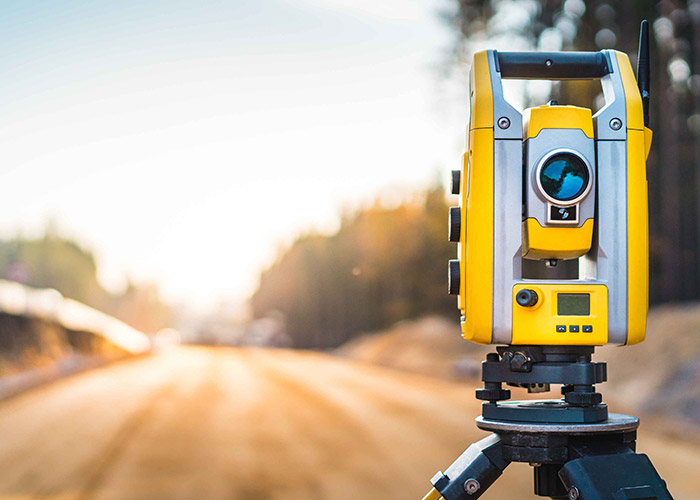
The Institution of Geospatial and Remote Sensing Malaysia (IGRSM) has again raised its concerns regarding the amendment to the Licensed Land Surveyors Act 1958 (Akta Jurukur Tanah Berlesen 1958) and the accompanying draft regulations (Peraturan-Peraturan Juruukur Tanah Berlesen (Pindaan) 2024).
It follows a town hall session held on September 9, 2024, by Malaysia’s Ministry of Natural Resources and Environmental Sustainability, Land Surveyors Board (LJT) and Department of Survey and Mapping Malaysia (JUPEM).
In a September 12 press release, IGRSM says the following points highlight the critical issues arising from the town hall meeting.
Denial of Access to Draft Regulations
Stakeholders were denied and not provided with the draft regulations before the session despite IGRSM’s repeated requests, thus preventing IGRSM from thoroughly studying and evaluating its impact, as well as proposing suitable amendments. The partial regulations were only briefly presented during the session, followed by a limited question and answer period, leaving insufficient time for stakeholders to engage in a meaningful discussion. Such minimal engagement is unacceptable and inappropriate given the gravity of the regulations, particularly to all the stakeholders from various sector.
Ambiguity in the Definition of Geomatics Survey
According to the definition of geomatics survey in the legislative amendment, ‘geomatics survey’ means any survey undertaken for the purposes of production of or in connection with, maps, geomatics survey plans or information using survey-accurate techniques.
IGRSM says the definition is ambiguous and may lead to confusion among readers, professionals and laypersons. They are concerned that a definition that lacks clarity and transparency carries significant penalties, including a potential prison sentence of up to three years and/or a fine of up to MYR250,000 ringgits. Given the emphasis of the Madani culture on language and terminology, the IGRSM believes the definition should be further clarified and articulated in a manner that is both explicit and easily understood.
Overly Broad Definition of ‘Survey-Accurate Technique’
The definition of ‘survey-accurate technique’ given is highly inappropriate and unnecessary. Survey-accurate technique means the act or process of determining;
-
the form, contour, position, area, height, depth or any other particulars of;– the Earth’s surface, whether of land or water or– any natural or artificial features on, below or above any part of the Earth’s surface; or
-
the position or the boundary of any part of the Earth’s surface.
The IGRSM says the definition does not mention about accuracy or technique, and its name is therefore misleading. It seeks to encompass virtually all geomatic surveys, whether conducted on land, water, natural and artificial features, and above, on and below the Earth’s surface. By casting such a wide net, the definition risks unduly restricting non-licensed land surveyors (non-LLS) geomatics professionals who have long provided accurate and reliable geomatics services in areas such as town and country planning, hydrography, agriculture, forestry, geology, landscape architecture and other fields. Such a broad interpretation could stifle innovation and progress in sectors that depend on geomatics expertise beyond the scope of land surveying conducted by LLS.
Restrictions on Geomatic Surveys
During the briefing, it was made clear that non-LLS geomatic professionals would no longer be permitted to conduct a wide range of geomatic surveys, including airborne survey and mapping, hydrographic survey and mapping, survey and mapping for building information model (BIM), survey and mapping for geospatial information system (GIS), terrestrial survey and mapping, and topographic survey and mapping. This restriction applies to geomatics surveys for;
-
The purpose of any submission to any government authority;
-
Public purposes; or
-
Any other purposes as required by any government agency, statutory body, government link company, or company appointed by government.
This broad exclusion risks sidelining many experienced geomatic professionals, adversely impacting industries reliant on these services. The regulations appear to reserve all geomatics survey projects by government departments and government-linked companies exclusively for LLS. The IGRSM expresses its concern on the competitiveness and value for money for government procurement of services.
No Pathway for Automatic LLS Registration for Non-LLS Professionals
Despite years of experience in the field and running their own practices, the IGRSM says it is shocking to observe that no regulations were introduced to allow non-LLS geomatics professionals to continue working uninterrupted after gazetting of the legislative amendment.
Once the amendment is enforced, these professionals will not be able to fulfil the new requirements of procuring projects and tenders, which unfairly wipes out these experts. Their businesses will suffer, and employees and graduates could be jobless. Ultimately, this will impact the Madini Government. Such being the case, the IGRSM urges the government to resolve this issue before it balloons into a larger problem and consider a moratorium on the amendment to resolve the problems of loss of livelihood of existing professionals.
Based on the briefing given at the town hall session, non-LLS geomatics professionals will not be able to continue their work. The procedure listed is for new entrants to the field, and they would need to go through a lengthy process to be registered as LLS. This involves training in fields that they may not even be working on, including two years as articled pupil for non-LLS surveyors with degrees in geomatics and surveying. For non-LLS geomatics professionals, they would need to undergo bridging exams to qualify to become articled pupil. During this time, whether these professionals can continue practicing remains solely at the discretion of LJT, a situation that could undoubtedly disrupt current practices and lead to significant delays in project execution. Furthermore, the briefing did not clearly specify the qualifications recognised by LJT for registration as LLS via the bridging method, leading to further uncertainty.
Limitations on Government Surveyors
The requirement for all government departments to have their staff authorised by the Director General of Survey and Mapping to conduct geomatics surveys may have repercussions if these departments do not get sufficient staff authorised.
The IGRSM understands from the town hall meeting that the authorisation of public officers to undertake geomatic surveys will be limited to specific posts, which are Surveyor (Juruukur), Geospatialist (Jurugeospatial), and Assistant Surveyor (Penolong Juruukur). This poses a serious challenge for public departments that do not have these positions within their organisational structures. These departments may either have to create new posts or hire LLS for their geomatics surveys, adding to costs and administrative burdens to their operations.
Ensuring Protections and Preventing Misuse
For geomatics professionals who have been working legally and diligently, it is crucial to ensure that their rights and livelihoods are not unduly compromised by these changes. In order to prevent potential misuse of licenses and ensure ethical practices, the Government should consider implementing stringent deterrents and penalties for any unethical subcontracting practices. The Valuers, Appraisers, Estate Agents and Property Managers Act 1981, particularly Sections 24 and 30, could serve as a useful reference for creating such safeguards. Additionally, including whistleblower protections to safeguard individuals who report such abuses is highly recommended.
Conclusion
The changes proposed by the Ministry of Natural Resources and Environmental Sustainability, LJT and JUPEM are poised to significantly disrupt current practices in various sectors. The IGRSM urges the Ministry to reconsider these amendments and engage in a more inclusive and transparent dialogue with all affected stakeholders. The current approach not only risks stifling industry innovation but also undermines the contributions of many geomatics professionals.
They say it is essential that legislative changes affecting specific groups undergo a thorough consultation process, with stakeholder feedback being properly incorporated. The IGRSM says that they were neither consulted nor provided with the draft regulations in advance, receiving only a short and insufficient briefing. They say the lack of engagement is deeply disappointing and undermines transparent decision-making.
The IGRSM is calling for the immediate dissemination of the draft regulations and an extension of the consultation period to ensure that all stakeholders can provide informed feedback. They say it is essential that any legislative changes reflect the full spectrum of professional practices in the geomatics industry and avoid the risk of monopolising critical sectors.





